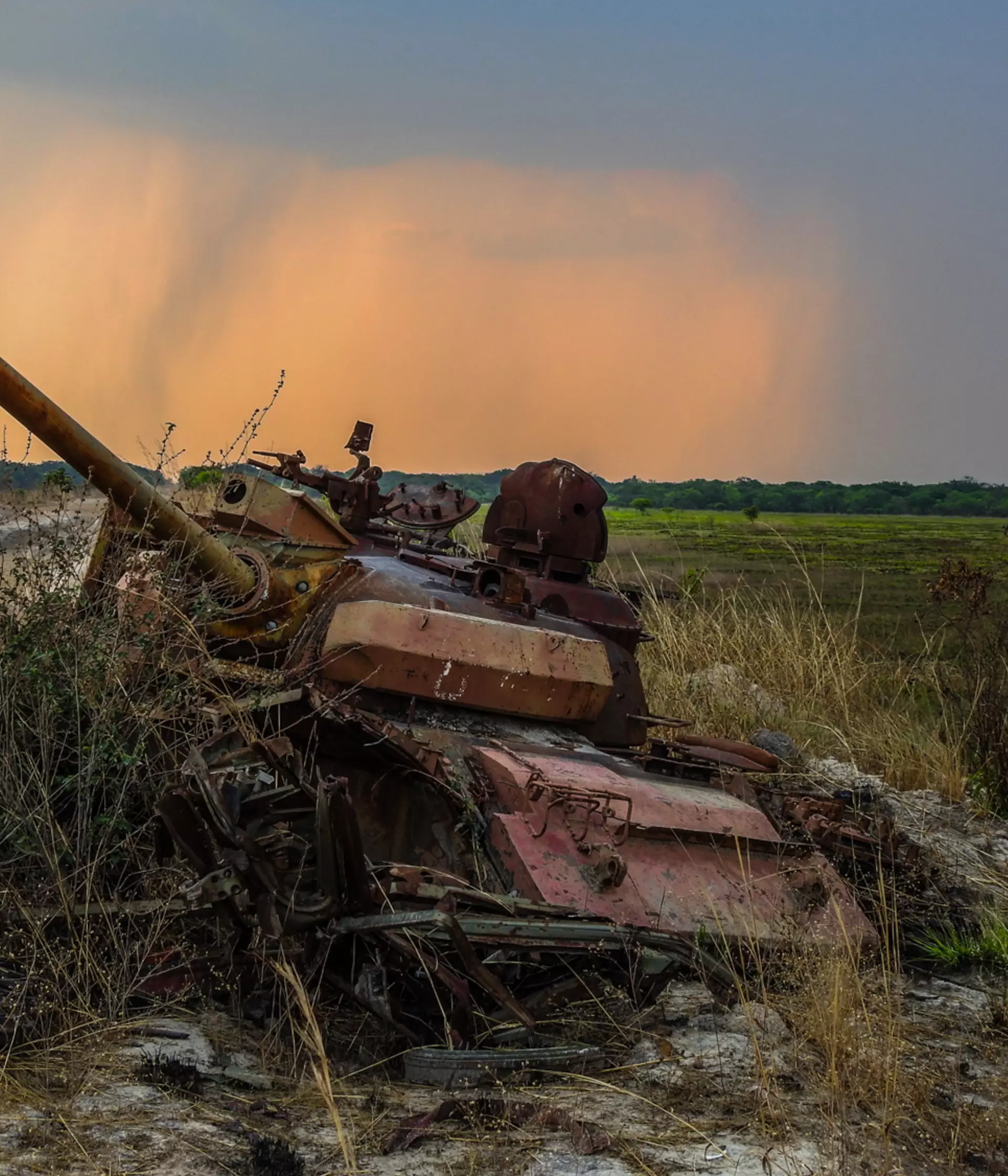In-person
Previous Event
Armed conflicts have been increasing in recent years, with over 7,000 armed conflicts documented worldwide in 2021.
A major proportion of these conflicts occur in Sub-Saharan Africa and west and south Asia, and many are associated with environmental degradation and resource competition, often also exacerbated by climate-change induced extreme climatic events, such as drought or flooding. Once a conflict has started it is often difficult for communities to protect the natural resources on which they depend and natural resource governance systems can break down, while explosive munitions and the destruction of factories and storage facilities can result in large scale environmental contamination. Mass forced displacement arising from conflict, affecting 70 million people globally, lawlessness and a rapid increase in the availability of small arms can have wide-ranging environmental impacts.
Safeguarding nature during conflict is extremely challenging, exacerbated by difficulties around access and a lack of resources, and is rarely a priority. However, nature restoration is vital to a peacebuilding process after conflicts have ended to avoid further environmental degradation and prevent future conflict and build a resilient and lasting peace.
In this event we explore the relationship between conflict and nature conservation, drawing on three case studies to illustrate the linkages between conflict and conservation.
Speakers
- Dr Susan Canney, Mali Elephant Project, "The role of communities in nature conservation during conflict – learning from the experiences of communities safeguarding Mali’s elephants"
- Dr Henrike Schulte to Bühne, Institute of Zoology, ZSL, "Environmental degradation caused by conflict and lessons for restoration – insights from Tigray’s community forests"
- Doug Weir, Conflict and Environment Observatory, "The impact of Russia’s invasion of Ukraine on Ukraine’s protected area network"
- Professor Karen Hulme, University of Essex, "International steps to protect the environment in relationship to armed conflict"
This event was chaired by Professor Sarah Durant, Senior Research Fellow, Institute of Zoology, ZSL.
Download the agenda and abstracts
This event has been organised in collaboration with the IUCN WCEL Specialist Group on Environmental Security and Conflict Law, whose support we are very grateful for.

Attending this event
- This Science and Conservation Event was free to attend but registration is required so we can monitor event numbers.
- The event featured talks from several speakers, followed by a Q&A discussion panel. It ran from 6:00pm - 7:30pm, and doors opened at 5:30pm.
- Seats are allocated on a first-come, first-served basis.
- Venue: Huxley Lecture Theatre at the Meeting Rooms of the Zoological Society of London, Regents Park, NW1 4RY. See map (number 2 on the Key).
- Travel: Nearest underground: Camden Town Station; Nearest bus: no. 274.
- Recording disclaimer: The presentations and Q&A session will be filmed during this event, and the recording published on our Science and Conservation YouTube channel afterwards. Please be aware that by attending this event you consent to be filmed or your voice to be recorded during the Q&A session, which will be included in the published video.
Further Information
- ZSL Science and Conservation Events sustainability guidance can be found here.
- For enquiries about this event, please email scientific.events@zsl.org.
- For press enquiries, please contact the ZSL Press Office: press.office@zsl.org.
- Listen to our ZSL Wild Science podcast here or subscribe on your favourite podcast app.
- Follow us on Twitter @ZSLScience to hear about new publications from our researchers, upcoming events and podcast episode releases.
- Follow us on Facebook @ZSLScienceAndConservation to receive notifications about new events.
- To catch up on all our recorded previous events, you can subscribe to our YouTube channel.
- For more information about how to join the ZSL Fellowship programme and engage with a network of thousands who are shaping the future of conservation, please click here.
